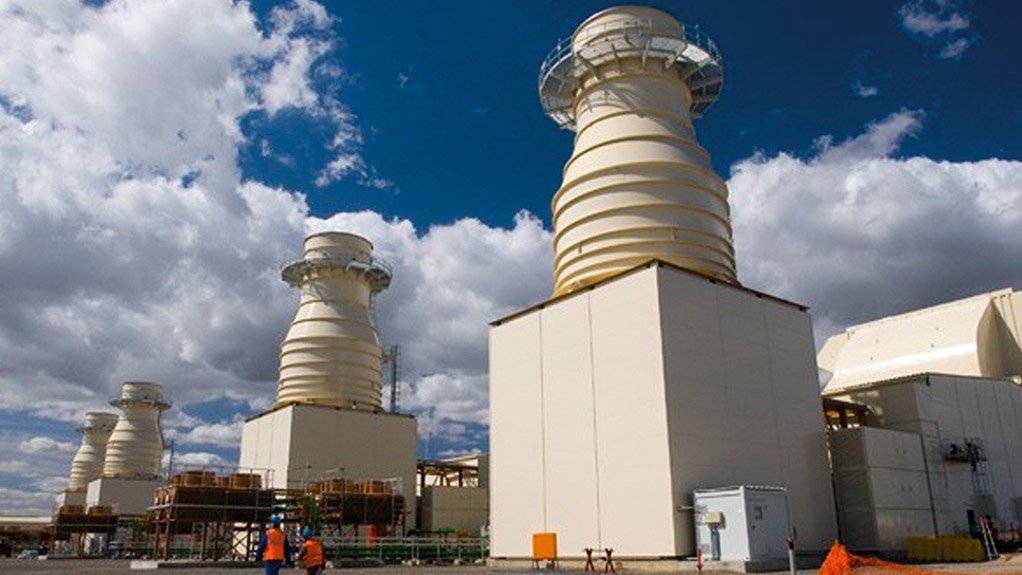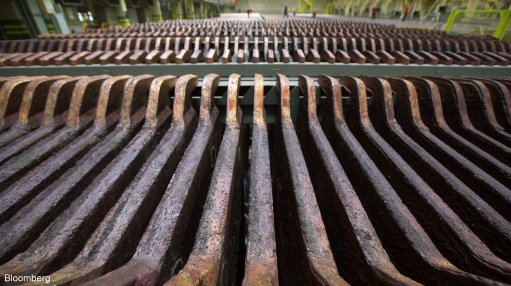Diesel supply problem blamed for low OCGT use during intense loadshedding week
Eskom has confirmed that problems in the diesel supply chain last week meant that it did not operate its open-cycle gas turbines (OCGTs) as “hard” as it would have done normally in a context where the utility was resorting to Stage 6 loadshedding.
Head of generation Bheki Nxumalo did not offer any details on the nature of the supply-chain problems during a weekly update on the Energy Action Plan.
He insisted, however, that the problem was temporary and was neither the result of insufficient budget nor a spill over from a dispute that certain bunkering fuel suppliers were currently having with the South African Revenue Service.
“There has been some industry issue with the value chain on the supply of diesel to the country, because all our main suppliers didn't have enough,” Nxumalo reported, stating that these suppliers had since indicated that deliveries would resume from September 18.
The lack of delivery had resulted in lower diesel reserves in Eskom’s storage tanks and a higher utilisation of the pumped hydro schemes, and had also necessitated the implementation of Stage 6 loadshedding to ensure that adequate system reserves were maintained.
Eskom’s daily system reports indicate that no electricity was produced from the OCGTs during the evening peak on either September 14 or 15, when 6 450 MW and 3 885 MW of loadshedding was being implemented respectively.
Earlier in the week, up to 17 Eskom and independent power producer (IPP) OCGT units were deployed in an effort to offset the rise in unplanned coal breakdowns and to reduce the intensity of loadshedding.
“It’s not that no OCGTs were run – both Eskom and IPP OCGTs did run last week. Although we didn’t run them as hard as we normally do under normal circumstances,” Nxumalo revealed.
Electricity Minister Kgosientsho Ramokgopa confirmed an overall poor operational performance for the period from September 11 to 15, indicating that the average available capacity fell to about 26 700 MW, while the average unplanned breakdowns rose to above 16 500 MW.
This, together with planned outages of above 4 800 MW, resulted in Eskom implementing high stages of loadshedding of between Stage 4 and Stage 6 during the week when average peak demand was about 29 000 MW.
OUTLOOK UNCERTAIN
Neither Nxumalo nor Ramokgopa provided an immediate explanation for the current divergence in messaging between those being provided during the weekly briefings and Eskom’s own Weekly System Status Report.
Until the most recent return to Stage 6 loadshedding, the weekly briefings have emphasised improvements in unplanned outages, admittedly only when compared with the low base of May, when the average unplanned breakdowns stood at above 17 300 MW. In addition, stress has been placed on how this performance will improve once the three Kusile units are reintroduced using temporary stacks.
Year-on-year figures indicate that the breakdown performance has not improved and that breakdowns during 2023 have remained above the 15 000 MW threshold set for keeping loadshedding to a minimum.
In addition, Eskom’s own Weekly System Status Report for Week 36 points to the prospect of unplanned outages remaining at 16 000 MW until September 2024, which suggests that the system will continue to have at least a 2 000 MW shortfall for every week of the coming 52 weeks.
Ramokgopa said greater clarity would be provided when the summer plan was released, with a provisional date of September 26 having been set for its publication.
He then went on to criticise “commentators” for pointing out that unplanned outages are higher in 2023 when compared with 2022.
“Yes, it will be, because if you do a year-on-year [analysis] you would have the benefit of the three units of Kusile. Now they are out and, therefore, it’s going to be higher.”
For any improvement, the Minister was continuing to place significant store on an earlier-than-planned return of the Kusile units, as well as the synchronisation of Kusile Unit 5.
He said Unit 3 was now due for return on October 14, rather than the November 28 date initially communicated, followed by Unit 1 on October 30 (December 11) and Unit 2 on November 30 (December 24).
Unit 4, which was out for planned maintenance in recent weeks, leaving Kusile without any production whatsoever, was reintroduced on September 17.
The units using temporary stacks would be returned at their full production nameplates of about 720 MW, owing to a minimum emission standard exemption, which allows the units to be reintroduced while bypassing the flue-gas desulphurisation plant.
Nxumalo insists that all other pollution control systems remain intact and that the three units, thus, do not need to operate at a lower rating as was initially indicated.
Comments
Press Office
Announcements
What's On
Subscribe to improve your user experience...
Option 1 (equivalent of R125 a month):
Receive a weekly copy of Creamer Media's Engineering News & Mining Weekly magazine
(print copy for those in South Africa and e-magazine for those outside of South Africa)
Receive daily email newsletters
Access to full search results
Access archive of magazine back copies
Access to Projects in Progress
Access to ONE Research Report of your choice in PDF format
Option 2 (equivalent of R375 a month):
All benefits from Option 1
PLUS
Access to Creamer Media's Research Channel Africa for ALL Research Reports, in PDF format, on various industrial and mining sectors
including Electricity; Water; Energy Transition; Hydrogen; Roads, Rail and Ports; Coal; Gold; Platinum; Battery Metals; etc.
Already a subscriber?
Forgotten your password?
Receive weekly copy of Creamer Media's Engineering News & Mining Weekly magazine (print copy for those in South Africa and e-magazine for those outside of South Africa)
➕
Recieve daily email newsletters
➕
Access to full search results
➕
Access archive of magazine back copies
➕
Access to Projects in Progress
➕
Access to ONE Research Report of your choice in PDF format
RESEARCH CHANNEL AFRICA
R4500 (equivalent of R375 a month)
SUBSCRIBEAll benefits from Option 1
➕
Access to Creamer Media's Research Channel Africa for ALL Research Reports on various industrial and mining sectors, in PDF format, including on:
Electricity
➕
Water
➕
Energy Transition
➕
Hydrogen
➕
Roads, Rail and Ports
➕
Coal
➕
Gold
➕
Platinum
➕
Battery Metals
➕
etc.
Receive all benefits from Option 1 or Option 2 delivered to numerous people at your company
➕
Multiple User names and Passwords for simultaneous log-ins
➕
Intranet integration access to all in your organisation





















